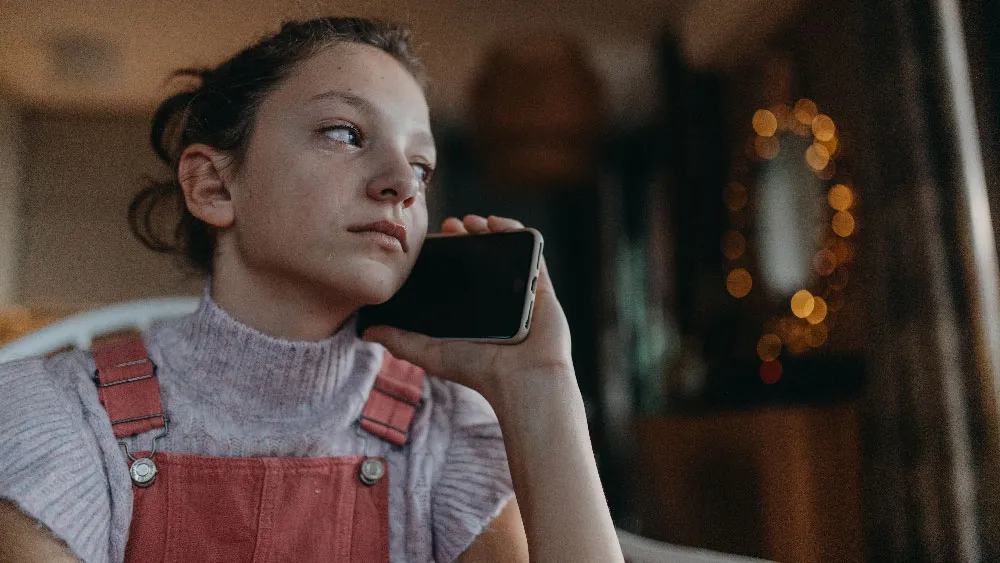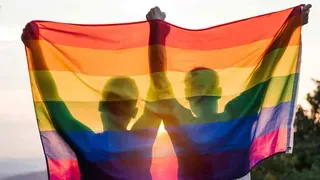July 17, 2017
Transitioning After an HIV Diagnosis
READ TIME: 4 MIN.
Of all the transitions confronted throughout a lifetime, testing positive for HIV/AIDS is one of the most earth-shaking. The Centers for Disease Control reports that in 2015, nearly 40,000 people in the U.S. had to face this news. Of these newly-diagnosed individuals, gay and bisexual men received 82 percent of positive results. This does not necessarily indicate that men who have sex with men constitute 82 percent of new infections; they may be disapportionate to the rate of infection because they are more likely to get tested.
Once you test positive, where do you go from there? How can you initiate such a transition, which will have long-lasting results? One woman reacted by dedicating her life to serving others like her.
Chelsea Gulden, diagnosed HIV+ in college, is now vice president of operations at RAIN. She believes empowerment is the key for newly-diagnosed HIV+ people.
"Therapy is a really great way to work through some of the initial feelings after diagnosis," Gulden told qnotes. "Talk about treatment options, remove fear, get them connected with medical care and medications."
This is the aim of RAIN, as well as other organizations. Affinity Health Center provides free testing, therapy, treatment and other services. Rosedale Infectious Diseases specializes in the treatment of HIV/AIDS and other diseases. There is help, if you're willing to look.
Unfortunately, Gulden says that not everyone who receives the news is as proactive as necessary.
"Some people use education and action, others drugs and alcohol," she said. "Some people get numb to the diagnosis and go into denial. These are the individuals who usually don't go into care, and often get sick, until they do deal with it."
After diagnosis, seeking a next step is essential. Yet some who test positive are more concerned with how they got there than where they'll go. It's an understandable reaction, but not always a healthy one.
"Some get really focused on who could have given it to them," Gulden said. "That can become an obsession for some people and it can really prohibit them from accepting the diagnosis and moving on."
But how do you move on, aside from seeking treatment? The process is complicated by social stigma and extreme misconceptions about the disease. Misinformation is problematic because it can not only affect relationships with others, but also the HIV+ person's attitude to their own treatment.
"There is still a lot of perception that HIV is highly contagious and will cause imminent death. People listen to us, but those beliefs have been so ingrained in them that they don't always hear us," Gulden said. "HIV is more manageable and less impactful than diabetes...The saddest part about HIV is it is not a death sentence as many people think, but it can still feel like a social death because of the stigma."
This "social death" can lead to extreme depression, self-isolation and even suicide. Negative reactions from loved ones are often the most painful part. Gulden believes that dealing with the diagnosis personally is an essential step, before sharing it with others whose reactions may hurt.
"I encourage people to come to terms with their diagnosis first, before telling people who you are unsure of their reaction and/or level of support," she said. "If you know someone will be supportive, by all means tell them, but if you're not sure, it's best to get a handle on your feelings first."
Once an HIV+ person reflects and decides on their own course of action, each has to choose for themselves when and whom to tell. For Gulden, her own diagnosis was a moment of change. She wanted to keep the secret, but soon learned that her voice was more important than comfortable silence.
"People are so afraid of disclosing publicly, even if they want to," she said. "I remember going into this field [of work] thinking I would help people 'like me' without letting anyone know. Within the first year, I felt like I had to shout it from every rooftop in Charlotte because we were so behind."
Gulden's work with Metrolina AIDS Project and now RAIN has brought her to the view that her diagnosis was a transition that led to a better life, not a tragic one.
"I am actively working to help engage the next generation of activists and advocates," she said. "It grounded me and focused me into a job which is much more than just a career - it is my passion, and my honor to serve others who are dealing with such a difficult diagnosis."
Gulden and her clients - now college graduates, doctors and educators - are living proof that the transition from negative to HIV-positive can be less catastrophic, and more progressive.
"The biggest successes are when you see someone come to terms with their diagnosis and become virally suppressed from successfully remaining adherent to their HIV medications," Gulden said. "The truth is a negative and a positive couple can have a very happy and healthy sex life... HIV is 100 percent preventable [and] people living with HIV can live perfectly happy and healthy lives, get married, have children."







